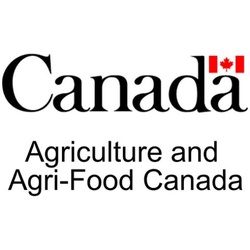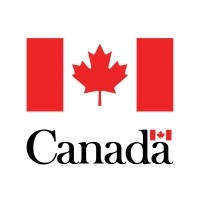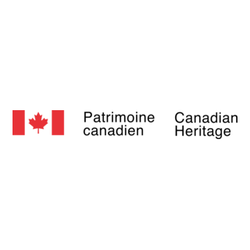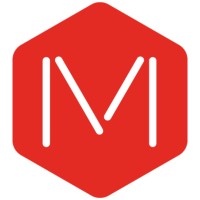
Skills for Success Program — Training and Tools Stream
At a glance
- No Condition
- Open Date : January 26, 2022
- Closing date : March 9, 2022
- All industries
- Canada
- All legal structures
- All revenue ranges
- All organization sizes
- Indigenous Peoples
- Persons with Disabilities
- Language Minorities
- Newcomers to Canada
- Other Racialized Persons
- Canadians
- Women
Overview
Access up to $10 million per project to help Canadians at all skill levels improve their foundational and transferable skills to better prepare for, get and keep a job, and adapt and succeed at work.
Activities funded
The Skills for Success Program's Training and Tools Stream is designed to enhance foundational and transferable skills among Canadians. Eligible projects must concentrate on strategic training initiatives and the creation of resourceful assessment tools.
- Designing and implementing training programs that improve foundational and transferable skills for effective job performance.
- Developing assessment tools and training resources that are accessible to Canadians free of cost.
Eligibility
Eligibility for this grant is determined by specific requirements related to both the applicant organization and the project criteria.
- Your organization must be one of the following:
- Not-for-profit organization
- For-profit organization (provided the nature and intent of the activity is non-commercial, not intended to generate profit, and supports program priorities and objectives)
- Labour union
- Municipal government
- Indigenous organization including:
- band council
- tribal council
- self-government entity
- Provincial and territorial government, institution, agency and Crown Corporation
- The project must have a duration that does not exceed March 31, 2024.
- The project scope must cover one or more of the following:
- National in scope, involving activities in more than one province or territory, including online delivery
- Regional in scope, involving activities within one province or territory targeting racialized groups or Official Language Minority Communities
- Remote in scope, involving activities in areas with a population of less than 1,000 and limited access to services of larger municipalities
- The project must request no more than $10 million in funding per project.
- The project must focus on designing and implementing training to support individuals in improving their foundational and transferable skills and/or developing assessment tools and training resources.
- The project must enable the broad adoption and uptake of the Skills for Success Model through a dissemination and sustainability strategy to share project results with organizations and employers.
- The project must ensure access to skills training opportunities without being affected by one's gender identity, gender expression, or sexual orientation, including a strategy to achieve gender equality in the delivery of training.
Who is eligible?
Eligible applicants for the Skills for Success Program – Training and Tools Stream include a variety of organizations that fulfill non-commercial intents and align with the program priorities and objectives.
- Not-for-profit organizations
- For-profit organizations (if the activity is non-commercial and not intended to generate profit)
- Labour unions
- Municipal governments
- Indigenous organizations, including band councils, tribal councils, and self-government entities
- Provincial and territorial governments, institutions, agencies, and Crown Corporations
Eligible expenses
The Skills for Success Program – Training and Tools Stream aims to enhance Canadians' foundational and transferable skills through innovative training and resource development. It targets projects that design training and create assessment tools to address current skills needs in the labour market.
- Design and implement training to improve foundational and transferable skills, ensuring individuals are better prepared for on-the-job demands.
- Develop assessment tools and training resources to support skill development.
- Engage in collaboration with employers or employer organizations to align training with industry and occupational requirements.
- Establish partnerships across sectors, regions, industries, or with community groups and educational institutions to drive training success.
- Ensure online or accessible format availability of assessment tools and training resources at no cost to Canadians.
- Integrate dissemination and sustainability strategies to facilitate the wide adoption of successful skills models.
- Implement strategies to ensure gender equality in access to training opportunities.
Eligible geographic areas
This grant is open to projects operating on a national or regional scope within Canada, and specifically targets certain remote areas as defined by their population and access to services. Eligible locations are specified to ensure the fund addresses various labour market needs effectively.
- National in scope: projects can operate in more than one province or territory, including online activities.
- Regional in scope: projects within a single province or territory targeting racialized groups or Official Language Minority Communities.
- Remote areas: defined as areas with a population of less than 1,000 and limited access to nearby municipalities with a population of 1,000 or more.
Selection criteria
The evaluation and selection of projects under the Skills for Success Program – Training and Tools Stream focus on how well the project addresses the program objectives and additional selection considerations.
- Organization's capacity: Detail how your organization has the relevant experience to deliver this project effectively.
- Project objectives: Explain how your project objectives align with Objective A (Design and implement training) and/or Objective B (Develop assessment tools and resources).
- Project activities: Describe how project activities align with the program objectives and provide clear, feasible timelines.
- Project results: Define the specific, concrete, and measurable expected results and outline your strategy for gathering, measuring, and reporting these results.
- Project costs: Justify the use of funds demonstrating that costs are reasonable and support project activities effectively.
- Additional funding considerations include prioritizing projects that target social-emotional skills and/or digital skills, and projects that address the needs of under-represented groups in the labour market.
How to apply
Gather Supporting Documents and Information
- Complete the application form.
- Prepare the budget detail template.
- If focusing on Objective A, include partnership letters.
Decide How to Apply
Apply Online (if chosen)
- Create a GCOS account, which may take up to 10 business days.
- Read the applicant guide to complete the application form.
- Complete and upload the budget detail template in GCOS.
- Access and complete the online form within 20 hours.
- Print and submit your application online.
Apply by Email or Mail (if chosen)
- Read the applicant guide to complete the application form.
- Complete the application form online or by hand.
- Complete the budget detail template.
- Email the application package to EDSC.CPR-SFS.ESDC@servicecanada.gc.ca with the subject line 'Training and Tools Stream' or post it to the given address.
Confirmation of Submission
- Receive an automatic confirmation of receipt online or by email.
- If mailed, receive confirmation by email within 21 calendar days.
Additional information
Here are additional relevant details for this grant:
- Eligible organizations were allowed to submit only one application per stream under a single CRA business registration number.
- Projects must end by March 31, 2024.
- For projects focusing on Objective A (training), involvement of employers or employer organizations is mandatory, requiring submitted partnership letters.
- For projects focusing on Objective B (assessment tools and training resources), these resources must be available online or in an alternate accessible format at no cost to Canadians.
- Funding decisions were expected to be made by late Fall 2022.
- If the application was incomplete, applicants had 5 business days to submit missing information upon notification; otherwise, the application could be rejected.
- There was a priority consideration for projects targeting social-emotional skills or digital skills, and projects supporting under-represented groups in the labor market, with specific allocations for persons with disabilities and racialized Canadians.
- About 50% of the program's funding is allocated to support under-represented groups, including 10% specifically for persons with disabilities and 20% for racialized groups.
Contacts
Frequently Asked Questions about the Skills for Success Program — Training and Tools Stream Program
What is the Skills for Success Program — Training and Tools Stream?
What is the deadline to apply?
Who is eligible for the Skills for Success Program — Training and Tools Stream program?
What expenses are eligible under Skills for Success Program — Training and Tools Stream?
Who can I contact for more information about the Skills for Success Program — Training and Tools Stream?
Where is the Skills for Success Program — Training and Tools Stream available?
Is the Skills for Success Program — Training and Tools Stream a grant, loan, or tax credit?
More programs like this

Canada Summer Jobs (CSJ)
Employment and Social Development Canada (ESDC)
Industrial Research Assistance Program (IRAP) — Youth Employment Program (YEP)
National Research Council Canada (NRC)
Mitacs Accelerate
Mitacs
Mitacs Accelerate International
Mitacs
Canada Service Corps – Service Placements Regional Stream
Employment and Social Development Canada (ESDC)
AgriDiversity Program
Agriculture and Agri-Food Canada (AAFC)
Humanitarian Workforce (HWF) - COVID-19 and other large-scale emergencies
Public Safety Canada (PSC)
Hire a permanent foreign worker
Refugees and Citizenship Canada
Canada Book Fund (CBF) — Support for Organizations – Internships
Canadian Heritage